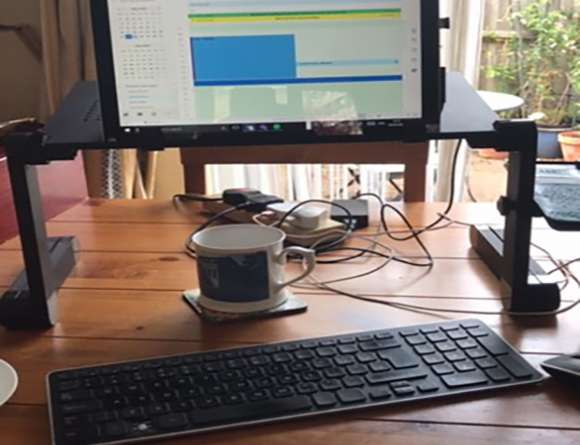The timbre of talks ranged from optimism (zipping from place to place at 100’s of MPH in driverless pods by 2050) to terror (zipping from place to place at 100’s of MPH in driverless pods by 2050). On the whole speakers told us how the RDM community are facing up to the practical challenges of ever increasing amounts of data, helping researchers to understand the importance of good stewardship while providing them with assistance and reassurance on issues of data privacy.
Data management plans were the subject of a large number of talks, a sign no doubt of the prevalence in DMPs as a funder requirement. Most interesting of the many DMP talks demonstrated platforms that are available to help produce Machine Actionable DMPs (https://doi.org/10.1371/journal.pcbi.1006750). This work is actively progressing the DMP from static administrative output to a standards driven process that can be integrated with other data stewardship processes and tools. We saw two implementations based on the open source DMProadmap platform (https://dmp.opidor.fr/ and https://github.com/DMPRoadmap/roadmap/wiki) before Tom Renner demonstrated the implementation that is available as part of the Haplo Research Manager (https://github.com/haplo-org/haplo-research-manager).
Of course almost every talk made reference to the FAIR principles of research data management, the mantra that research data should be Findable, Accessible, Interoperable, and Re-Usable was much repeated and many speakers shared their thoughts on how to realise these principles whilst managing the practicalities of researcher engagement and data sensitivity. The FAIR principles are increasingly referenced in policy documents and one of the last presentations of the conference, on the European Open Science Cloud, continued this trend. This covered the recently published “Rules for Participation” in the EOSC one of which is that “Data providers will respect principles of FAIR data”.
The event left the impression that Open Data will continue to be integral and grow in importance as part of the UK, European and Global research policy landscape.
The following week we donned our headphones to listen in on the UKRI OA consultation information event at the British Library. Sir Duncan Wingham, David Sweeney and Rachel Bruce (UKRI) and Stephen Hill (Research England) chaired a discussion on the draft proposal for the UKRI OA policy which is under consultation until April 17. There were a number of talking points and concerns for librarians, publishers and research managers alike and the consultation team will certainly receive a fair number of queries and suggestions in the coming month or so. There was some approval in the room for the stated effort to ensure that there were to be zero conflicts between UKRI and (the next) REF OA policies. The fact there is set to be alignment between the two policies and the presence of Stephen Hill from Research England ensured that there were a fair few REF queries from the floor too.
From the point of view of us who provide the platforms that manage the access to open access materials there were a few key highlights.
Firstly that monographs will be in scope for the UKRI OA policy. Secondly that there was a confirmation from Rachel Bruce that research data was “very probably” set to be included in the next REF OA policy. This latter point further re-confirming that FAIR research data will be of increasing importance in national and regional policy. I hope to discover more about open data trends when I attend the Research Data Alliance Plenary in Melbourne later this month, and where that might take us in regards the provision of research technologies services.
Overall we feel the repository community is well prepared for the conclusions that UKRI might reach for their OA policy, and we welcome their public consultation (available at https://www.ukri.org/funding/information-for-award-holders/open-access/open-access-review/) along with the effort to ensure non-conflicting policy positions between UKRI and Research England. This gives the community the chance to apply the lessons learned from the REF2021 OA policy and ensure that UK institutions to share in the continuing development of the global open access movement.
All this along with the increased importance being placed on research data globally, it’s an exciting time to be working in repositories! If you think so too and you’d like to join us, we have a current opportunity to work with the Research Technologies team at CoSector, University of London.


